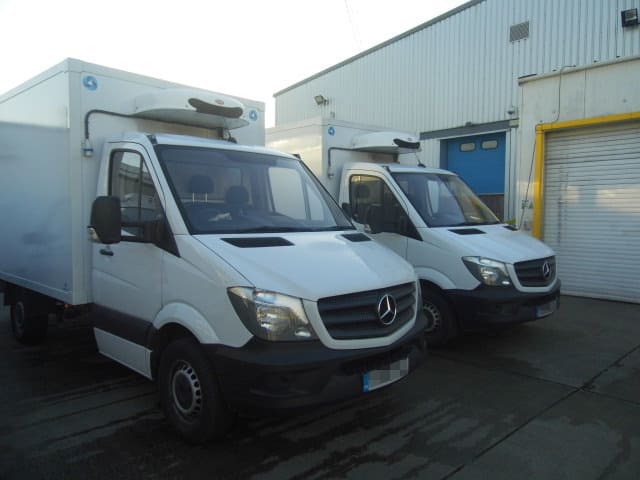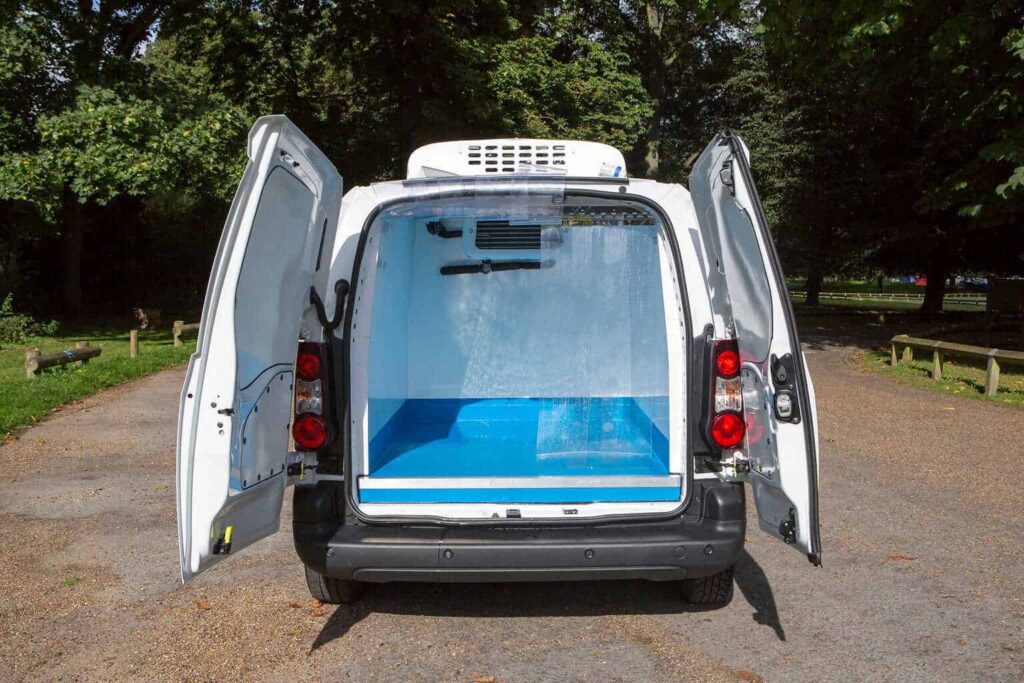It’s easy to take for granted the conveniences of modern life, particularly those that operate behind the scenes. One such critical, yet often overlooked, innovation is refrigerated transportation.
Without it, the way we live, eat, and conduct business would be drastically different.
The History of Refrigerated Transportation and How It Has Shaped the World
Refrigerated transportation, or cold chain logistics as it is often known, has a history that stretches back over a century. The need to preserve food and other perishables during transport became apparent as urbanisation increased and people began to move away from agricultural areas into cities.
Before the advent of refrigeration, food preservation methods included salting, smoking, drying, and canning, all of which significantly altered the taste, texture, and nutritional value of the food.
The first attempts at refrigerated transport involved using naturally occurring ice to keep goods cool. In the mid-19th century, American railroads began using ice to preserve meat during transportation, a method that was soon adopted by other industries and countries.
However, it was not until the late 19th and early 20th centuries that mechanical refrigeration was developed, revolutionising the food industry. The first mechanically refrigerated rail car was introduced in the 1870s, allowing fresh produce, dairy products, and meats to be transported over long distances without spoiling.
This innovation had profound impacts globally. For instance, it enabled countries to trade perishable goods over long distances, contributing to globalisation. It also allowed urban populations to access fresh food year-round, regardless of the season. The global food supply chain as we know it today would not exist without refrigerated transportation.
Beyond food, the pharmaceutical industry has also greatly benefited from refrigerated transportation. Vaccines, biologics, and other temperature-sensitive drugs require cold storage during transport to maintain their efficacy. The ability to transport these goods safely and efficiently has improved global healthcare, making life-saving medicines accessible to people worldwide.
The Importance of Refrigerated Transportation to the Supply Chain
Refrigerated transportation is the backbone of several critical industries, particularly food and pharmaceuticals. Without it, the entire supply chain would collapse, leading to disastrous consequences for businesses and consumers alike.
Firstly, without refrigerated transportation, food spoilage would skyrocket. Perishable goods like fruits, vegetables, dairy, and meat would no longer be able to be transported over long distances, leading to a significant reduction in the availability of fresh food. Supermarkets would struggle to stock their shelves, and consumers would be forced to rely on preserved or processed foods, which typically have lower nutritional value. The result would be a drastic change in diets, with far-reaching implications for public health.
Secondly, the pharmaceutical industry would face insurmountable challenges. Many drugs require strict temperature controls to remain effective. Without refrigerated transport, it would be nearly impossible to distribute these medications, particularly to remote or underserved areas.
This would not only compromise patient care but also hinder global efforts to combat diseases, including pandemics like COVID-19.
Moreover, the agricultural industry, which heavily relies on refrigerated transportation to move produce from farms to markets, would be severely impacted. Farmers would face financial losses as their crops spoil before reaching consumers, and food shortages would become a common occurrence. The economic ripple effect would extend to retailers, restaurants, and consumers, ultimately leading to higher food prices and increased food insecurity.
In addition, the disruption of the cold chain would have significant environmental consequences. Spoiled food produces methane, a potent greenhouse gas when it decomposes. The absence of refrigerated transport would likely lead to an increase in food waste, exacerbating climate change.
The Scale of Refrigerated Transportation in the UK
In the UK, refrigerated transportation is a critical component of the logistics industry, with thousands of vehicles crisscrossing the country every day to deliver fresh and perishable goods. Although exact figures vary, it is estimated that over 500,000 refrigerated vehicles are operating across Europe at any one time, with a significant proportion in the UK.
These vehicles, ranging from small, refrigerated vans to large trucks, are used by a wide variety of businesses, from local food producers and florists to national supermarket chains and pharmaceutical companies. The ability to transport goods at controlled temperatures is essential for ensuring that products reach consumers in the best possible condition.
Every day, countless refrigerated vans and trucks travel up and down the UK, making local deliveries in cities like London, Manchester, and Birmingham, as well as long-haul trips to remote regions. The sheer scale of this operation highlights the importance of refrigerated transport to the UK economy and the daily lives of its citizens.
Technological Advancements in Refrigerated Transportation
The technology behind refrigerated transportation has come a long way since the days of ice-cooled rail cars. Today, modern refrigerated vehicles are equipped with sophisticated temperature control systems that allow for precise regulation of conditions within the cargo area. This ensures that goods are kept at the optimal temperature throughout their journey, regardless of external weather conditions.
One of the most significant advancements in recent years has been the development of multi-temperature vehicles. These vehicles are divided into compartments, each with its temperature controls. This allows different types of goods to be transported in the same vehicle, reducing the need for multiple trips and improving efficiency.
In addition, telematics systems have revolutionised the way refrigerated transportation is managed. These systems provide real-time data on the temperature and location of goods, allowing companies to monitor shipments remotely and respond quickly to any issues. This has greatly improved the reliability of refrigerated transport and given businesses greater peace of mind.
Another notable innovation is the use of eco-friendly refrigerants and energy-efficient cooling systems. With increasing awareness of environmental issues, there has been a push towards reducing the carbon footprint of refrigerated transport. Modern vehicles are now equipped with systems that use less energy and produce fewer emissions, making them more sustainable options for businesses.
The Future of Refrigerated Transportation: The Role of Self-Driving Vehicles and Emerging Challenges
As technology advances, the future of refrigerated transportation is poised to undergo significant transformations. One of the most promising developments is the advent of self-driving vehicles.
Autonomous vehicles have the potential to revolutionise the logistics industry, offering enhanced efficiency, reduced operational costs, and improved safety. However, the integration of self-driving technology into refrigerated transportation also presents a unique set of challenges that must be carefully addressed to ensure its successful implementation.
The Benefits of Working with a Specialist Provider Like FridgeXpress
Given the complexity and importance of refrigerated transportation, businesses that rely on this service can greatly benefit from working with a specialist provider like FridgeXpress.
One of the key benefits of working with FridgeXpress is access to a wide range of vehicles. Whether you need a small van for local deliveries or a larger vehicle for national distribution, FridgeXpress has a solution to meet your needs. Their fleet includes the latest models equipped with advanced temperature control systems, ensuring that your goods are transported safely and efficiently.
Another significant advantage is the expertise that FridgeXpress brings to the table. With years of experience in the industry, they understand the unique challenges of refrigerated transportation and can provide valuable advice and support. This includes helping you choose the right vehicle for your specific needs, as well as offering guidance on best practices for maintaining the cold chain.
Contract leasing a refrigerated van from FridgeXpress also comes with additional benefits, such as maintenance and servicing. Refrigerated vehicles require regular maintenance to ensure that they remain in optimal condition. With a contract lease from FridgeXpress, these services are typically included, allowing you to focus on your core business activities without worrying about vehicle upkeep.
Furthermore, FridgeXpress offers flexible leasing options that allow you to scale your fleet up or down depending on your needs. This is particularly useful for businesses that experience seasonal fluctuations in demand. Whether you need additional vehicles during peak periods or want to reduce your fleet during quieter times, FridgeXpress can accommodate your requirements.
Finally, working with FridgeXpress can help you reduce costs and improve efficiency. By leasing rather than purchasing vehicles, you can avoid the significant upfront costs associated with buying a refrigerated van outright. Leasing also allows you to benefit from the latest technology without the need for frequent vehicle upgrades, ensuring that your business remains competitive.
Contact Us Today
A world without refrigerated transportation would be a vastly different place, marked by food shortages, higher prices, and compromised healthcare. The history of refrigerated transport is a testament to its critical role in shaping modern society, enabling global trade, and ensuring the safe delivery of perishable goods. The importance of this technology to the supply chain cannot be overstated; without it, many industries would struggle to survive.
Technological advancements have continued to improve the efficiency and sustainability of refrigerated transportation, making it an even more vital component of the logistics industry. For businesses that rely on this service, working with a specialist provider like FridgeXpress offers numerous benefits, from access to a wide range of vehicles to expert advice and flexible leasing options.
As the demands of the modern world continue to grow, the role of refrigerated transportation will only become more critical. By understanding its importance and partnering with experienced providers like FridgeXpress, businesses can ensure that they are well-equipped to meet the challenges of the future.




